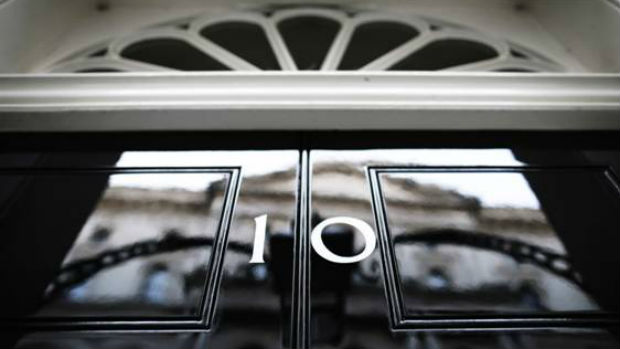General election 2017 results: Business confidence 'through the floor'
IoD reports 'dramatic drop' in optimism, while Moody's says outcome is 'credit negative' for UK

A free daily email with the biggest news stories of the day – and the best features from TheWeek.com
You are now subscribed
Your newsletter sign-up was successful
Business confidence is "through the floor" following last week's general election, reports the BBC.
A "snap poll of 700 members of the Institute of Directors (IoD)" found a "dramatic drop" following the result, which left the UK with a hung parliament.
"Members saw no clear way to resolve the political impasse quickly", adds the BBC, but there is "no desire" for another election this year, with business leaders feeling this would be "negative for the UK economy".
The Week
Escape your echo chamber. Get the facts behind the news, plus analysis from multiple perspectives.

Sign up for The Week's Free Newsletters
From our morning news briefing to a weekly Good News Newsletter, get the best of The Week delivered directly to your inbox.
From our morning news briefing to a weekly Good News Newsletter, get the best of The Week delivered directly to your inbox.
Theresa May proposed deal with the Democratic Unionist Party to cling to power in a minority government is expected to be a far less stable arrangement than prior to the election.
It could also mean the Tories having to make significant compromises on their manifesto, not least on Brexit.
In one sense, businesses have been emboldened by the election result and are calling for a softer exit from the European Union.
IoD members want "a rapid agreement with the EU on transitional arrangements for Brexit, along with clarity on the status of EU workers in the UK", says the BBC, adding: "A separate survey of more than 50 medium-sized businesses and trade associations by the Harvard Kennedy School of Business found that 'almost all' expressed a preference for remaining in the single market and customs union."
A free daily email with the biggest news stories of the day – and the best features from TheWeek.com
However, Sir Martin Sorrell, chief executive of advertising giant WPP, told City AM he felt the election meant that "paradoxically", the chances of both a soft Brexit and a "no deal" scenario have both increased.
Basically, the Tories now have less of a mandate for a hard Brexit, but also less parliamentary stability to secure any deal at all.
Meanwhile, because the "election outcome will complicate and probably delay Brexit negotiations", it is "credit negative" for the UK, according to Moody's, reports The Guardian.
The ratings agency also believes the "election outcome, with significant gains for the Labour Party which had campaigned for increased public spending, will [mean the] public debt ratio will rise further and for longer than we had expected".
This is also seen as negative for the UK credit rating as it will place "the UK among the few highly rated European sovereigns whose public debt is still rising".
-
 The ‘ravenous’ demand for Cornish minerals
The ‘ravenous’ demand for Cornish mineralsUnder the Radar Growing need for critical minerals to power tech has intensified ‘appetite’ for lithium, which could be a ‘huge boon’ for local economy
-
 Why are election experts taking Trump’s midterm threats seriously?
Why are election experts taking Trump’s midterm threats seriously?IN THE SPOTLIGHT As the president muses about polling place deployments and a centralized electoral system aimed at one-party control, lawmakers are taking this administration at its word
-
 ‘Restaurateurs have become millionaires’
‘Restaurateurs have become millionaires’Instant Opinion Opinion, comment and editorials of the day
-
 Can the UK avoid the Trump tariff bombshell?
Can the UK avoid the Trump tariff bombshell?Today's Big Question President says UK is 'way out of line' but it may still escape worst of US trade levies
-
 Five years on, can Labour's reset fix Brexit?
Five years on, can Labour's reset fix Brexit?Today's Big Question Keir Starmer's revised deal could end up a 'messy' compromise that 'fails to satisfy anyone'
-
 Why au pairs might become a thing of the past
Why au pairs might become a thing of the pastUnder The Radar Brexit and wage ruling are threatening the 'mutually beneficial arrangement'
-
 Brexit: where we are four years on
Brexit: where we are four years onThe Explainer Questions around immigration, trade and Northern Ireland remain as 'divisive as ever'
-
 Is it time for Britons to accept they are poorer?
Is it time for Britons to accept they are poorer?Today's Big Question Remark from Bank of England’s Huw Pill condemned as ‘tin-eared’
-
 Is Brexit to blame for the current financial crisis?
Is Brexit to blame for the current financial crisis?Talking Point Some economists say leaving the EU is behind Britain’s worsening finances but others question the data
-
 Labour shortages: the ‘most urgent problem’ facing the UK economy right now
Labour shortages: the ‘most urgent problem’ facing the UK economy right nowSpeed Read Britain is currently in the grip of an ‘employment crisis’
-
 Will the energy war hurt Europe more than Russia?
Will the energy war hurt Europe more than Russia?Speed Read European Commission proposes a total ban on Russian oil